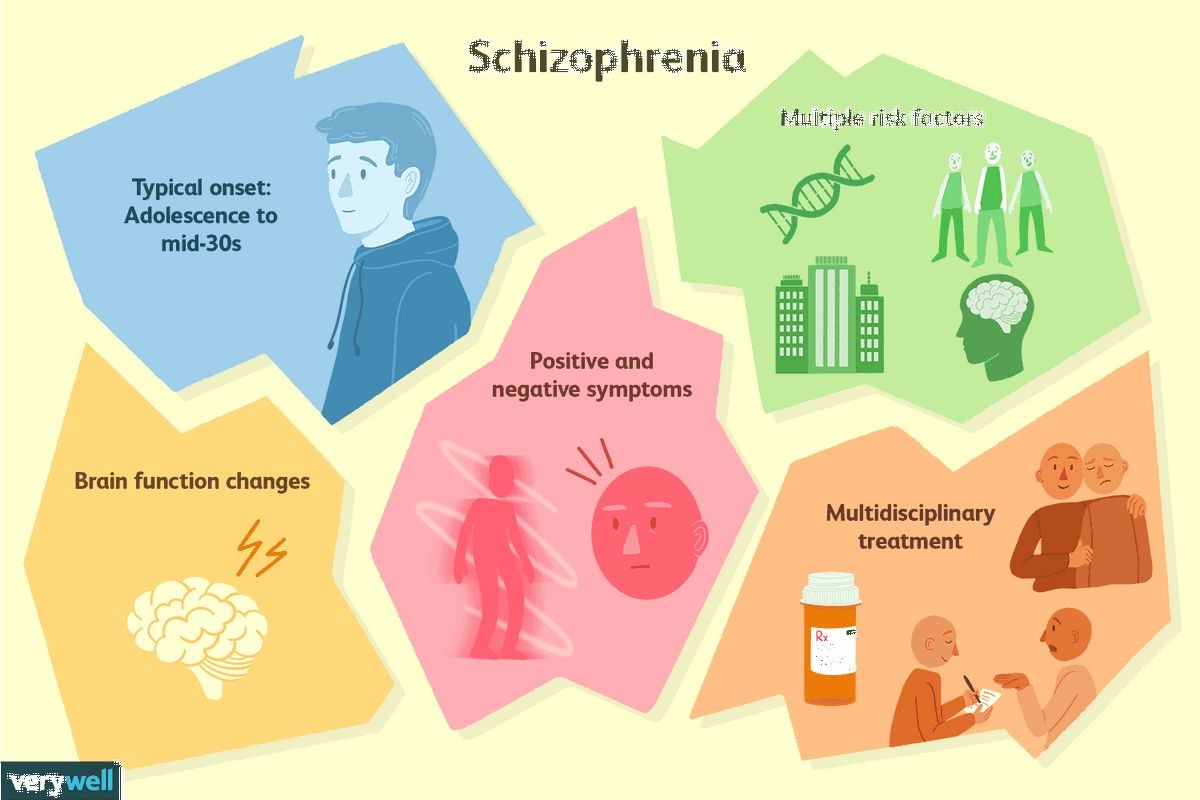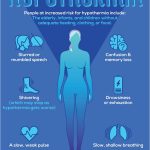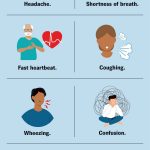
Signs of Drug-Induced Schizophrenia
Schizophrenia is a severe mental illness causing psychosis. Drug-induced schizophrenia can last a few days to a few weeks.
Drug-induced psychosis can last hours, days, or weeks. A schizophrenic episode triggered by drug use can take months to stabilize.
Schizophrenia is a serious mental illness causing psychosis: extreme confusion and difficulty distinguishing reality. It also leads to apathy, emotional emptiness, neglect of self-care, and withdrawal from social interactions.
Drug-induced schizophrenia occurs when you have schizophrenia symptoms after using drugs: known as drug-induced psychosis.
Drug-induced psychosis is the correct term because drugs can cause general psychosis, but they don’t directly cause schizophrenia. Schizophrenia must already exist or you must be susceptible to it, and drugs can trigger the onset of symptoms. Drug use can also worsen symptoms or cause a relapse.
Drug-induced psychosis
Psychosis is a detachment from reality leading to hallucinations and delusions. You see and hear things that others don’t and believe things that aren’t true. Drug-induced psychosis occurs when you use too much of a drug, combine different drugs, or experience withdrawal.
Drugs can lead to toxicity, disrupting brain chemistry and causing paranoia and a psychotic episode.
Substances known to cause drug-induced psychosis include:
- Alcohol
- Cannabis
- Amphetamines
- Opioids
- Sedatives
- Cocaine
- Psychedelics like LSD or ecstasy
Drug abuse triggers early schizophrenia
The exact cause of schizophrenia is unknown. It likely results from a combination of genetics, trauma, and environmental factors affecting brain chemistry and structure. However, studies show that misusing mind-altering drugs increases the risk of triggering schizophrenia, especially if used as a teenager and if already susceptible to the condition.
Drug abuse triggers schizophrenia relapse
If you’re recovering from a severe schizophrenic episode and experiencing psychosis, using drugs and alcohol can trigger a relapse. While alcohol and street drugs may temporarily alleviate schizophrenia symptoms, over time, they worsen the illness and symptoms.
Symptoms of drug-induced schizophrenia
Symptoms of drug-induced psychosis gradually appear with increased drug use. Prolonged and intense substance abuse heightens the risk of developing psychosis. Symptoms can vary depending on the specific drug.
Hallucinations
Some substances, such as LSD, make you see, hear, and feel things that aren’t real while under the influence. Substance-induced psychosis and hallucinations can also occur without drug use, typically associated with long-term, excessive drug consumption.
- Hearing voices, narrating your actions or commanding self-harm
- Seeing people, shadows, or lights that don’t exist
- Hearing sounds like music or footsteps that aren’t real
- Feeling imaginary bugs on your skin
- Smelling nonexistent odors
- Sensation of floating or moving
Delusions
Delusions involve firmly believing something untrue. They are a characteristic feature of schizophrenia, which can also coexist with drug-induced psychosis.
- Grandiose beliefs, thinking you’re famous or a country’s president
- Religious delusions, believing you are a revered spiritual figure
- Bizarre beliefs, such as others implanting thoughts or resurrecting the dead
- Believing hallucinations have explanations, e.g., hearing voices signals you’re being stalked
Paranoia
Paranoia is the unfounded belief that someone intends to harm or threaten you. It causes anxiety, stress, and fear. These thoughts manifest as delusions or exaggerated suspicions. Drug toxicity often leads to persecutory or paranoid delusions, but these can also occur in schizophrenia and are exacerbated by drugs.
Common paranoid beliefs include:
- Feeling threatened by someone
- Believing others are talking about or excluding you
- Thinking the government is controlling you
- Feeling people are trying to steal your possessions
Can drug-induced schizophrenia be resolved?
Recovery from drug-induced psychosis is possible. It generally subsides within days or a few weeks. If symptoms persist for more than four weeks, a diagnosis of schizophrenia may be considered. It takes up to 12 months for a severe schizophrenic episode to stabilize, but the condition never fully disappears.
However, don’t lose hope. With treatment and assistance, most individuals with schizophrenia can lead fulfilling lives.
Nevertheless, if you use street drugs and alcohol, you will experience periods of worsened symptoms and relapses.
Treatment for drug-induced schizophrenia
In most instances of drug-induced psychosis, a calm environment, time to recover, and sometimes medication are sufficient. Close supervision by a doctor is necessary to monitor for toxicity and withdrawal symptoms. For individuals with schizophrenia, long-term medication and addiction treatment are vital for overall well-being.
Medication
If drug-induced psychosis necessitates medication, benzodiazepines or antipsychotics will be prescribed. Further treatment may not be required once symptoms subside.
However, if diagnosed with schizophrenia, ongoing antipsychotic medication is necessary even after symptoms disappear. Schizophrenia is a lifelong disorder, and medication helps manage symptoms to maintain independence. In cases of severe relapse or episode, hospitalization may be necessary until improvement occurs.
Treatment for substance-use disorder
Some individuals with schizophrenia turn to street drugs or alcohol due to easy access, affordability, and temporary relief. However, these substances can trigger relapses and worsen schizophrenia over time.
Avoiding alcohol and drugs and seeking treatment for substance use disorder is crucial. Treatment may involve hospitalization, medication, rehabilitation, and therapy.
Outlook
While drugs don’t cause schizophrenia, they can trigger relapses or early onset of the disease if already present. Using drugs and alcohol greatly increases the risk of exacerbating schizophrenia. Talk to your doctor about effectively managing substance abuse and schizophrenia.
Sources:
American Addiction Centers: "Substance Induced Psychosis: Signs & Treatment Near Me."
American Journal of Psychiatry: "Substance-Induced Psychotic Disorders and Schizophrenia: Pathophysiological Insights and Clinical Implications."
Mayo Clinic: "Schizophrenia."
Merck Manual Professional Version: "Substance-/Medication-Induced Psychotic Disorder."
Mind: "What is paranoia?"
National Health Service: "Causes — Schizophrenia," "Hallucinations and hearing voices," "Living with — Schizophrenia," "Treatment — Schizophrenia," "Symptoms — Psychosis."
Pharmacy and Therapeutics: "Schizophrenia: Overview and Treatment Options."
Priory: "Drug Induced Psychosis: Causes, Symptoms and Treatment."
Schizophrenia Society of Canada: "Schizophrenia & Substance Use."
Schizophrenia Society of Canada: "Schizophrenia & Substance Use."


